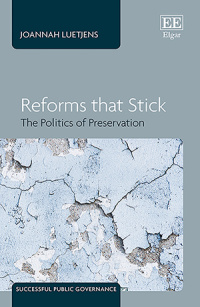
Hardback
Handbook of Indigenous Public Policy
这个开创性的手册》探讨了关键的腿al, political and policy questions concerning the implementation of Indigenous rights across the world. Expert contributors analyse the complex dynamics of contestation, engagement, advocacy and refusal between governments and Indigenous Peoples, presenting a profound challenge to mainstream policy scholarship.
More Information
Critical Acclaim
Contributors
More Information
这个开创性的手册》探讨了关键的腿al, political and policy questions concerning the implementation of Indigenous rights across the world. An exciting mix of expert Indigenous and non-Indigenous contributors analyse the complex dynamics of contestation, engagement, advocacy and refusal between governments and Indigenous peoples, presenting a profound challenge to mainstream policy scholarship.
Chapters employ both country-level case studies as well as global analyses, covering key themes such as self-determination, sovereignty, culture, land and territory. They showcase the extensive evidence that policy imposed on Indigenous peoples without their involvement is at best ineffective and at worst harmful. Through examining the ongoing impacts of colonisation, contributors identify future pathways for Indigenous public policy, including truth-telling processes, resurgence movements, and international human rights law. Ultimately, the Handbook highlights the vital importance and extensive policy benefits of treating Indigenous people as rights-bearing members of sovereign and self-determining Indigenous nations.
The Handbook of Indigenous Public Policy will be essential reading for students and scholars of Indigenous studies, public policy, international relations, and political science. It will also be invaluable for policy-makers looking to centre Indigenous people and their rights in the policy-making process.
Chapters employ both country-level case studies as well as global analyses, covering key themes such as self-determination, sovereignty, culture, land and territory. They showcase the extensive evidence that policy imposed on Indigenous peoples without their involvement is at best ineffective and at worst harmful. Through examining the ongoing impacts of colonisation, contributors identify future pathways for Indigenous public policy, including truth-telling processes, resurgence movements, and international human rights law. Ultimately, the Handbook highlights the vital importance and extensive policy benefits of treating Indigenous people as rights-bearing members of sovereign and self-determining Indigenous nations.
The Handbook of Indigenous Public Policy will be essential reading for students and scholars of Indigenous studies, public policy, international relations, and political science. It will also be invaluable for policy-makers looking to centre Indigenous people and their rights in the policy-making process.
Critical Acclaim
‘Full of critique and aimed at healthier futures, the Handbook provides the most comprehensive and current snapshot of Indigenous policy at the global scale. It highlights a broad range of Indigenous aspirations in the face of ongoing injustice and in the process demonstrates Indigenous resilience in various contexts.’
– John Borrows, University of Toronto, Canada
– John Borrows, University of Toronto, Canada
Contributors
Contributors include: Frances Abele, Isabel Altamirano-Jiménez, Adam J. Barker, Emma Battell Lowman, Moroni Benally, Claire Charters, Diana Chávez Vargas, Gioconda Coello, Charlotte Coté, Raymond Foxworth, Candace Kaleimamoowahinekapu Galla, Joanne Garcia-Moores, Samara Hand, Amanda Holmes, Rauna Kuokkanen, Elifuraha Laltaika, Sheryl Lightfoot, Aküm Longchari, David B. MacDonald, Sarah Maddison, Justin McCaul, Dalee Sambo Dorough, Damien Short, Elizabeth Strakosch, Mukta S. Tamang, Fleur Te Aho, Anya Thomas, Valmaine Toki, Mariam Wallet Med Aboubakrine, Tracey Whare




